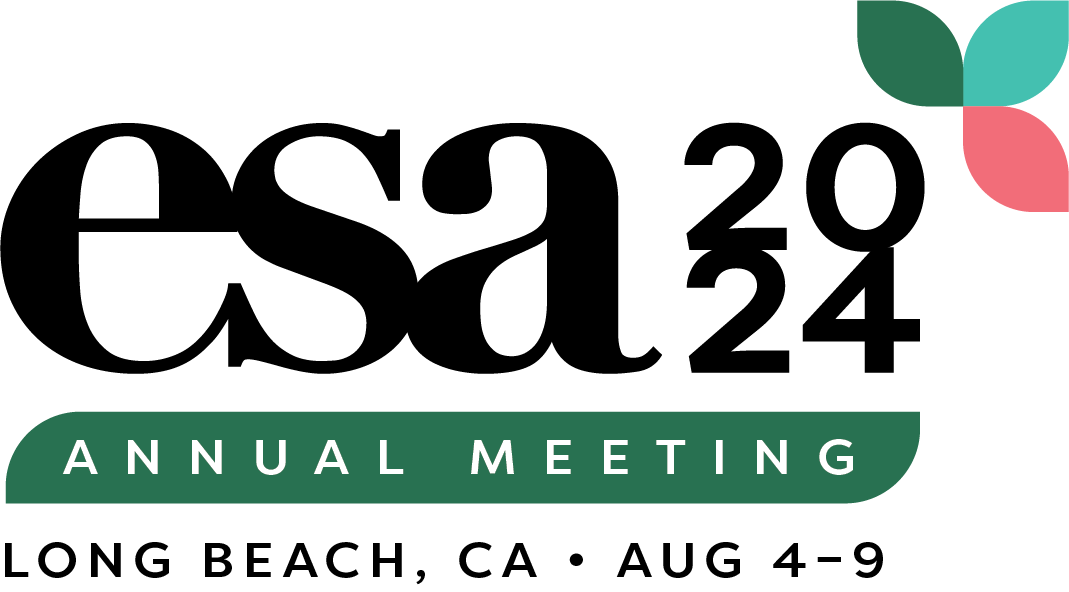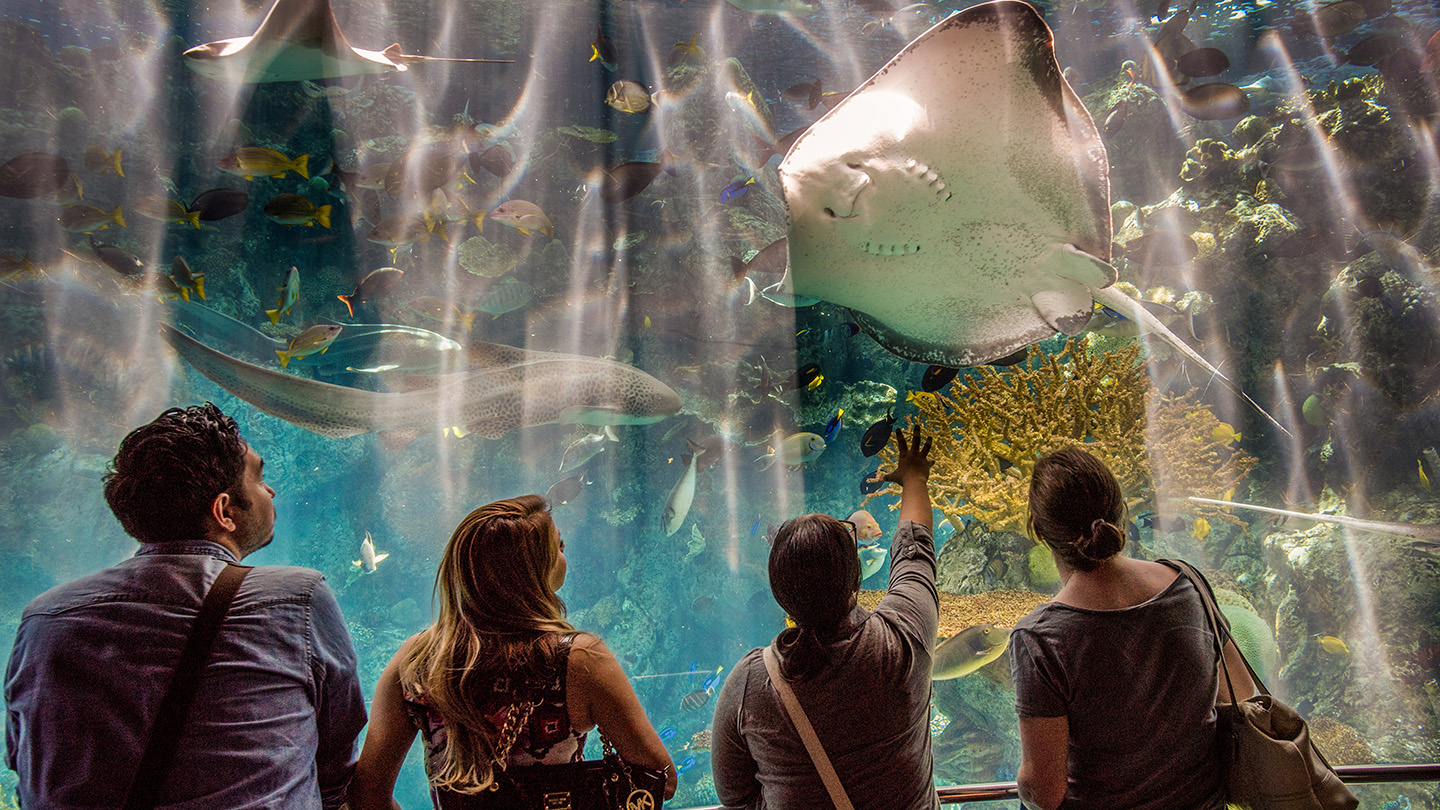2024 Annual Meeting
Long Beach, California, USA
August 4-9, 2024
Submission Deadline
Thursday, December 14, 2023
5:00 PM Eastern (2:00 PM Pacific)
Sections on this page
Estimated time to read:
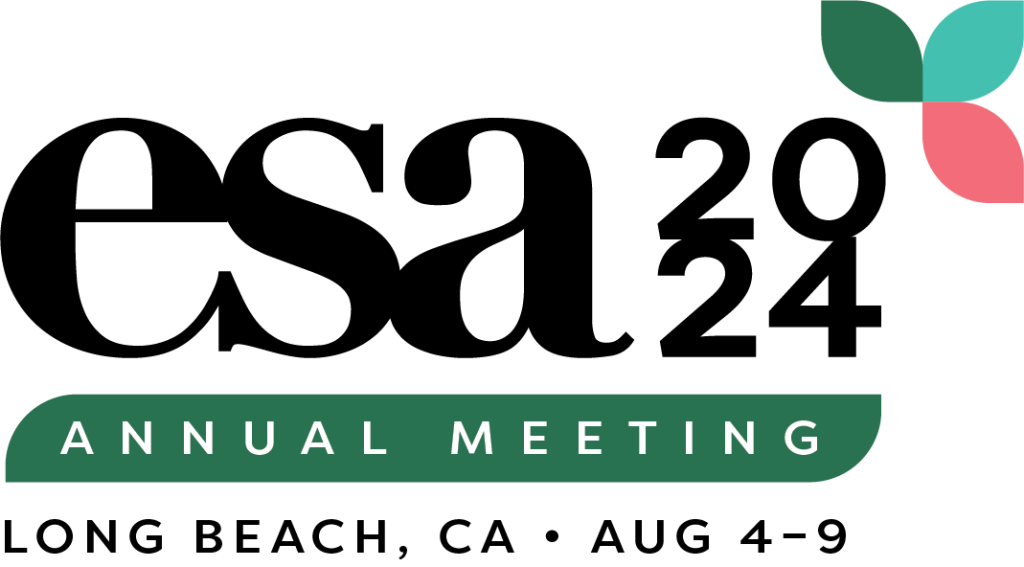
How to Submit
You must submit your proposal using the online submission form. Proposals sent by email will not be considered. Proposals that are incomplete will not be considered.
All ESA Annual Meeting proposal and abstract deadlines are 5:00 PM Eastern so that technical support and ESA staff assistance will be immediately available when submitters need it. If you begin your submission very close to the deadline, you are choosing to take a risk, and we will not make an exception if you are unable to complete your submission in time. The form automatically closes at 5:00 EST / 2:00 PST whether you have completed your submission or not.
We have a new submission system this year. Unlike previous years, you will not receive an automatic email when you start a new submission. You will receive an automatic email when you complete your submission. You will be able to return to the proposal to edit it until the submission deadline has passed.
To submit a proposal, you will need to log in using an ESA account. If you have been an ESA member or registered for an ESA meeting in recent years, or use ECOLOG-L, you should already have an ESA account; if not, you can create an account.
Your username and password to log in for the meeting are the same as for your ESA account. You do not need to pay membership dues to create an ESA account or submit for the meeting.
Important Note
ESA meetings, open to everyone interested in ecology, are among the most respected meetings of ecologists in the science community. ESA is committed to providing a safe, productive and welcoming environment. All participants including, but not limited to, attendees, speakers, volunteers, exhibitors, ESA staff, service providers and others are expected to abide by the ESA Meetings Code of Conduct. This Code of Conduct applies to all ESA meeting-related events including those sponsored by organizations other than ESA but held in conjunction with ESA events, in public or private facilities. In addition, ESA members and authors of ESA publications must adhere to the ESA Code of Ethics and the ESA Diversity Statement.
About Field Trips
We invite proposals for field trips for the 2024 ESA Annual Meeting. Field trips allow participants to explore ecological attractions local to the meeting city and region. Trips may last part of a day or an entire day. Most trips require bus transportation; however, we welcome walking and biking tours close to the convention center. Use of public transportation is also encouraged, if applicable. There is a vast array of things to experience within driving distance of the meeting, and we hope attendees take the chance to see what the area has to offer. You can browse examples of field trips from the 2023 meeting in Portland here.
Logistical Considerations
Trips that last an entire day are usually scheduled during the weekend prior to the beginning of the formal scientific program. Shorter trips may take place over the weekend or during the week, including Friday morning. Field trips may be linked with other conference events.
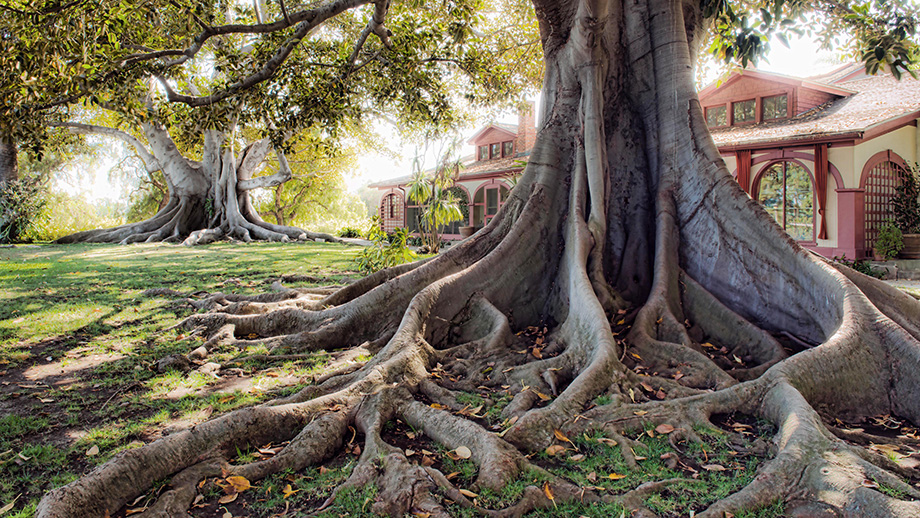
Field trip leaders will accompany trip attendees at all stages of the trip. ESA will not pay guide fees, consulting fees, or any similar fees to a trip leader.
Field trips will be cancelled if they do not reach a minimum of 10 attendees by July (not counting organizers and co-organizers).
Proposal Format
The information listed below must be submitted through the online submission form. It is provided here to assist you in planning your submission. The form may differ slightly from the version listed here. You may begin a submission and then return to edit it up until the deadline.
Components of a Proposal
- Session title (75 words max.) A strong session title is short and descriptive.
- One lead organizer (Required; name, institution, and email).
- Co-organizer(s) (Optional; name, institution, and email for each).
- Topical track (Optional; select up to 2): Would you like this session to be considered for inclusion in any of the following tracks? Please only select a track if you think it’s a good fit for this proposal.
- Career Exploration
- Education
- Justice, Equality, Diversity and Inclusion (JEDI)
- Data Skills Training
- Traditional Ecological Knowledge
- Communication and Engagement
- Trip overview (400 words max., required): Why would someone want to go on this trip? Please provide more than just a site description. The overview should address what participants can expect to see and experience during the trip. This text will appear in the meeting program to help attendees decide whether to join this trip.
- Equipment and attire (200 words max., required): What should attendees bring to be prepared for this trip? Will people need anything other than summer street clothes? Will there be any strenuous parts of this trip? Assume they are not familiar with the local climate.
- Trip Itinerary (Required): A chronological list of times and places for the trip. The itinerary must state specific destination(s) including addresses and indicate how much time will be spent in each place. The itinerary will be used to assess proposals and will be sent to the driver to help them prepare for the trip. It will not appear in the meeting program.
- Alignment with values (required): Does this session align with the values in the ESA’s Diversity Statement? Yes/No. If you answered “no” to this question, please provide an explanation.
- Barriers to Participation (required): Are there any barriers to participation associated with the session that may discourage full attendance by all ESA members? Yes/No. If you answered “no” to this question, please provide an explanation.
- Preferred trip date: Saturday August 3, Sunday August 4, Monday August 5, Tuesday August 6, Wednesday August 7, Thursday August 8, Friday August 9.
- Preferred trip start and end times: You will select times from a drop down list. Most trips are a full or half day. Half day trips should take place in either the morning or the afternoon to allow participants to attend half of the day’s scientific presentations. Friday trips must end by noon.
- Directions: Provide detailed directions for the route the bus will take on the trip. We will give these to the bus driver. Please include a link to Google Maps with directions from the convention center to the trip destination. If there will be multiple destination, be sure to include directions for each step of the trip.
- Additional trip support: Is anyone else helping during this trip? Please list any people (excluding the trip leader) we should include for transportation and meal counts in addition to the attendees.
- Trip leader mobile phone: Please provide your mobile phone number that we can use to call or text you on the day of the trip.
- Maximum attendance: What is the maximum number of attendees (excluding the trip leader and anyone helping them) you could manage for this field trip?
- Box lunch: Should a box lunch be included? All meals provided will be vegetarian.
- Transportation needs: ESA will arrange for all transportation for this trip, including vehicles and professional drivers. Will the sites that we visit accommodate a bus or will we need smaller vehicles due to the roads, turnaround space, or parking? Options: A bus is ok for this trip, a bus is too big for this trip (a smaller vehicle such as a van will be needed), transportation will not be needed (we are walking or using public transportation).
- Advance arrangements and costs (Optional, 200 words max.): If there are any arrangements that need to be made in advance of this trip, please describe them here. For example, does your trip require equipment rentals (bikes, canoes) or reservations (museum tour tickets)? Are there any additional costs you anticipate? For example, parking fees, tolls, park entrance fees, or site reservations for a picnic. Please include: what the arrangement is, how much you expect it will cost, and who is the point of contact (name, email, phone). If you are planning to make any of these arrangements yourself, please let us know here.
- Accessibility (Optional, 200 words max.) Is there any information you can provide about this trip that will help interested attendees assess whether they would be able to attend? We are interested in any accessibility information you can provide that seems important for potential attendees of this trip to know. Answering this question is not required and will not affect whether this proposal is accepted. The goal is to provide helpful information to attendees who are looking for trips that accommodate their needs.
Here are some examples of accessibility information that would apply to many of our field trips.
- Could someone with limited mobility attend? Will there be lots of steps or stairs?
- How much walking will attendees be expected to do (how many miles or hours)?
- Is the walking generally easy, moderate, or strenuous? What makes it moderate or strenuous, in those cases?
- Is the site wheelchair accessible? (ESA will take care of the bus accommodation.)
- Are bathrooms available?
- Scheduling notes (Optional, 200 words max.): Is the session intended to be linked to another session or social event? Are there any other sessions proposed for the meeting you are aware of that should not be scheduled at the same time as this one? Are there any other considerations we should know about when scheduling this session? We will do our best to avoid known scheduling conflicts. This will only be seen by the committee. It will not appear in the meeting program.
Guidelines for Planning
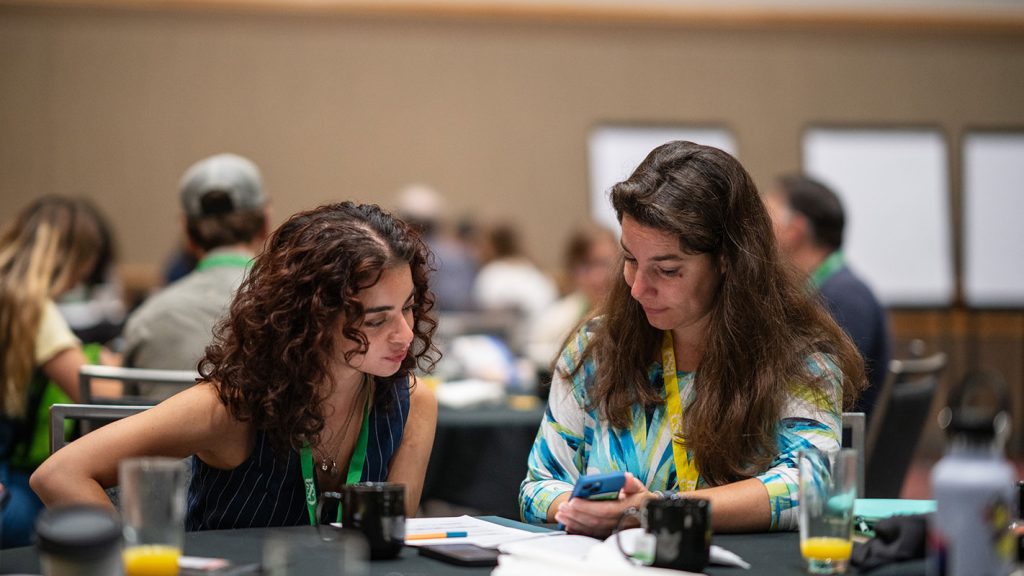
This section is intended to guide your field trip planning. It includes some issues to consider in the context of the trip you hope to offer. We offer guidance so that the time and energy you’ve invested in planning and preparation results in a successful trip. All field trip information should be finalized by early March so that trip descriptions and costs can be included when registration for the meeting begins. If you have questions during the planning process, please contact meetings@esa.org.
General guidelines
Trips are required to have one organizer who will be the point of contact for correspondence with ESA and will be asked to make decisions regarding the trip during planning. Co-organizers may also be listed, but the lead organizer is the point of contact.
- All trips will begin and end at the convention center and all participants must travel with the group.
- Trip organizers are expected to accompany the entire trip to provide information during the trip and handle any unexpected developments.
- All aspects of each trip (transport, logistics, personnel, etc.) should be accomplished as economically as possible. The higher the trip costs, the more challenging it will be to attract registrants.
- No financial or contractual commitments may be made without approval of ESA’s Director of Convention and Meetings, Christi Nam.
- The trip title and overview should be written with particular attention to attracting attendees. A concise title and compelling overview can make a big difference.
- Trips that do not meet the minimum registration number (10 registrants, not counting the trip organizer and co-organizers) by July will be cancelled.
- What is your itinerary?
- The itinerary is an agenda for the trip in order of stops, including addresses for every stop. Here’s a hypothetical example.
8:00 AM – Leave Long Beach Convention Center for Deane Dana Friendship Park and Nature Center (1805 W 9th St, San Pedro, CA 90275) to arrive by 8:30 AM.
11:00 AM – Leave Deane Dana Friendship Park and Nature Center to return to Long Beach Convention Center (300 East Ocean Boulevard Long Beach, CA 90802.) to arrive by 11:30 AM.
This is a very simple example with only one destination included. The itinerary must state a specific destination(s) for the trip and a detailed itinerary that provides a list of addresses and indicates how much time will be spent in each place. This means that before submitting the proposal, the trip organizer needs to work out an overall plan for the trip that follows a realistic schedule.
Ultimately the itinerary you provide will be used by the bus driver – exactly as written. It can be revised after the proposal stage but it cannot be revised after trip transportation has been booked (typically in early March).
Most trips will visit one or more destinations that fall under a consistent theme. It is up to the leaders to determine the amount of interpretive material provided and the number of local experts and other resource people involved.
How many people can your trip accommodate?
Early in your planning, you should determine how many people can go on your trip.
The maximum number of participants may be determined by available space at the destination, the number of people that you are comfortable leading, the transportation limitations required by the site (e.g., if buses cannot access the site so you are limited to smaller vehicles), or by other factors. ESA staff will work with you to determine if transportation options limit the attendee number for this trip.
If the trip doesn’t meet a minimum of 10 registrants (not counting organizers and co-organizers) by July then it will be cancelled.
What are the transportation needs for your trip?
Transportation for all field trips will be arranged by ESA. Most trips require buses, but walking tours, biking, and public transportation are welcome options as well. Please let us know if there are any locations on your itinerary that would be difficult to reach by bus.
Who can participate in your trip?
Your trip description should provide guidelines about the age and physical capabilities of the participants. Children under the age of 16 are not permitted on field trips. Each participant will need to sign a liability waiver release form before boarding the bus on the day of the trip.

What is the schedule for your trip?
You should determine when your trip will occur. In addition to your own schedule and time constraints posed by the trip itself, here are some things to consider.
All participants will be picked up and dropped off at the convention center at specific times. You should plan your trip to occur within the planned time and you should strive to stick to your schedule to avoid problems for attendees with other activities scheduled after the trip.
The conference begins at 5:00 pm on Sunday, August 4th with the Opening Plenary and ends at noon on Friday, August 9th. Field trips can be scheduled for the preceding weekend (August 2-3) or during the week, including Friday morning. The timing of your trip can strongly influence the number of participants.
Full day trips are typically scheduled on Saturday or Sunday. We typically advise against planning a full day trip during the week unless there is a strong justification for doing so. Keep in mind that the 5:00 PM start of the meeting on Sunday evening may limit your planned activities.
Short trips that take place in the morning or afternoon of a weekday are a great opportunity to get people out of the convention center area to see some of the local attractions. Such trips should ideally be planned to minimize overlap with scientific sessions at the meeting. For example, if the trip takes place in the morning, plan to return in time for attendees to go to the afternoon sessions. Friday morning trips are encouraged since there will be no scientific presentations on Friday. Friday trips should return by noon.
You will need to provide an agenda for your trip and detailed directions to any destinations. This information is essential in pricing the trip.
A link to an online map service is a required part of the proposal. Click to begin trip directions from the convention center using Google Maps. The Long Beach Convention & Entertainment Center address is: 300 East Ocean Boulevard Long Beach, CA 90802.
What financial arrangements will your trip require?
ESA does not make a profit on field trips, but we must break even. ESA will consider the following when setting the fee for a field trip:
- Transportation costs.
- Boxed lunch, bottled water.
- Admission or entrance fees.
- Other costs such as boat rentals, bicycle rentals, etc.
- Direct costs incurred by trip leaders and any other non-paying co-leaders or assistants plus 5% for contingency purposes.

ESA field trips will not
- Pay any guide fees or consulting fees to trip organizers or trip leaders.
- Make charitable contributions or donations to organizations supported by the trip organizer or leader.
- Allow trip leaders to make any kind of financial profit in running the trip.
- Include alcohol themed destinations or activities (pub crawls, wine tastings). We know these are fun, but due to liability concerns, they need to take place on your own time outside of a field trip.
Evaluation Process and Criteria
The Program Subcommittee reviews all proposals for special sessions and makes acceptance decisions. The primary criteria for acceptance include logistical feasibility, probable interest by meeting attendees, and a clearly written and compelling description. Limits of space and time may make it impossible to accommodate all worthy submissions. The Program Subcommittee has final authority for acceptance and scheduling for any proposed field trip.
The scheduling requests of trip organizers are taken into consideration but are not guaranteed as the final scheduling. Since many trips request morning departures, the start times typically need to be staggered as a series of departures in the final scheduling.
If Your Proposal Is Accepted
All trip organizers will be notified of acceptance decisions in February. At that time, organizers will be provided with instructions to begin preparing the trip for the online program in the spring. In February, trip organizers will be informed of their trip’s scheduling.
Finalized information for all accepted trips will become available in the online program when registration opens so that meeting attendees can browse available trips.
Cancellation Policy
Once a field trip has been accepted and listed online, cancellation imposes a serious burden. Once a scheduled field trip reaches the minimum registration, it will not be cancelled. Do not submit a proposal if you are uncertain that you will be able to fulfill your obligation to organize and conduct the trip. Once a trip is accepted by the Program Chair, cancellation by the trip organizer may preclude the acceptance of any trips proposed by the organizer for the 2025 ESA Annual Meeting.
If the minimum registration of 10 people is not reached by July, the trip may be cancelled. ESA will be in communication with the trip organizer if this becomes likely.
Important Dates
| December 14, 2023 | Deadline for submitting a proposal to ESA. |
| February 29, 2024 | Notification of acceptance sent to organizer. |
| April 2024 | Finalized session information is available in the online program. |
